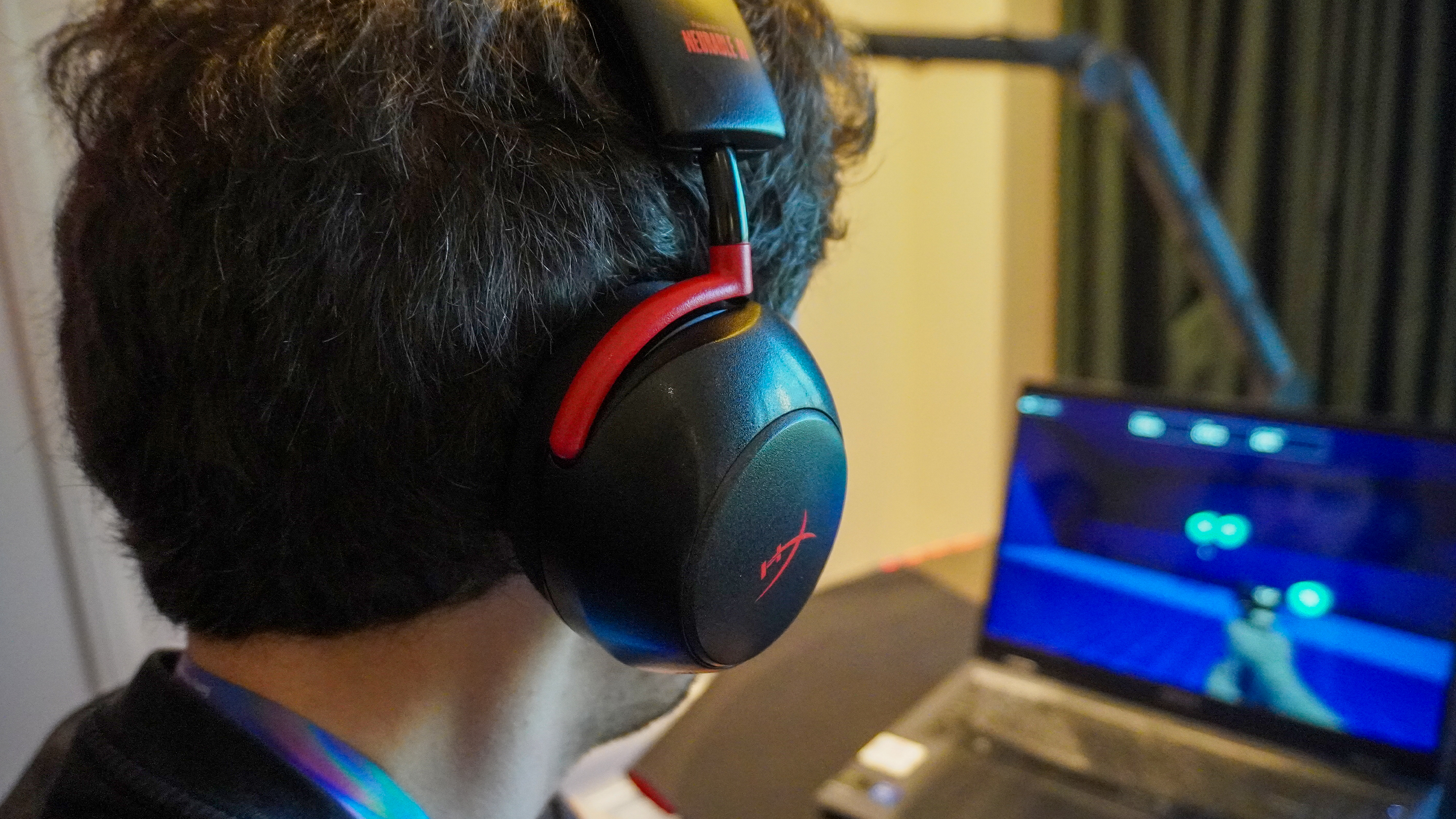KRACK Attack Threatens All Wi-Fi Networks: What to Do
A serious flaw threatens all Wi-Fi enabled devices, letting attackers snoop on encrypted traffic, stealing passwords and injecting malware.
UPDATE: Google has patched its own Android phones against KRACK.
UPDATE: Apple has patched iOS against the KRACK attack. More details below.
UPDATE: Some companies have begun to respond to KRACK, issuing patches — or deferring action until later. We've compiled available information for updating routers in a new article.
This story was originally published Oct. 16, 2017.
A severe flaw in the encryption protocols used by nearly all modern Wi-Fi networks could let attackers hijack encrypted traffic, steal passwords and even inject malware into smartphones and laptops.

Dubbed KRACK, or Key Reinstallation Attack, by its discoverer, the flaw affects all widely used platforms: Windows, Mac, iOS, Linux and Android. Android 6.0 Marshmallow and later, and Linux kernel 2.4 and later, are especially hard-hit.
Despite the severity of the flaw, it is rather difficult to implement. The user needs to be within Wi-Fi range of a smartphone or laptop to attack it. The attack does not work over the internet.
Get instant access to breaking news, the hottest reviews, great deals and helpful tips.
What to Do
Users should keep using encrypted Wi-Fi wherever necessary, such as at home and at work. However, you might want to avoid using the Wi-Fi networks, even password-protected ones, in coffeeshops, hotels, airports and other public places for the time being. Use cellular data or a VPN service instead.
Fortunately, many Wi-Fi router and client-device makers have already or are about to issue patches -- a list of vendors that have already issued patches is at https://www.kb.cert.org/vuls/id/228519 (you may need to copy and paste the URL) -- so users should update their routers, smartphones and laptops as soon as possible.
UPDATE Oct. 31: Apple's iOS 11.1 update for iPhones and iPads includes a solution that protects against KRACK attacks. To update, open Settings, tap General, tap Software Update and tap Download and Install.
UPDATE Nov. 8: Google's November Android security update patches the KRACK flaw. Google's own Pixel and late-model Nexus phones will get the update immediately. Other brands' updates will depend on the manufacturer and carrier.
MORE: Best Wi-Fi Routers
The attack is mostly against client devices, including laptops, Wi-Fi enabled desktops, smartphones, tablets and smart-home devices. It's more important that client devices get patched than routers get patched, although patching the routers wouldn't hurt.
There's no need to change your Wi-Fi password: The KRACK attack doesn't require knowing your Wi-Fi password, and doesn't even access it. Rather, the main line of attack involves setting up a rogue network in range of the real one, using the same network name so that some devices connect to the rogue network instead.
KRACK was discovered by Mathy Vanhoef, a postdoctoral researcher at the Catholic University of Leuven in Belgium. He's put up a website detailing the flaw in relatively easy-to-understand terms, as well as a research paper that's not so easy to grasp.
"The attack works against all modern protected Wi-Fi networks," Vanhoef wrote on the "official" Krack attack site. "To prevent the attack, users must update affected products as soon as security updates become available. Note that if your device supports Wi-Fi, it is most likely affected."
The flaw is not in the cryptography underlying WPA2 or its predecessor, WPA. Rather, it's in the implementation.
When communicating with a client device to initiate a Wi-Fi connection, the router sends a one-time cryptographic key to the device. That key is unique to that connection, and that device. In that way, a second device on the same Wi-Fi network shouldn't be able to intercept and read the traffic to and from the first device to the router, even though both devices are signed into the same Wi-Fi network.
The problem is that that one-time key can be transmitted more than one time. To minimize connection problems, the WPA and WPA2 standards let the router transmit the one-time key many times if it does not receive an acknowledgement from the client device that the one-time key was received.
Because of that, an attacker within Wi-Fi range can capture the one-time key, and even force the client device to connect to the attacker's bogus Wi-Fi network. The attacker can retransmit the one-time key, which forces the client device to roll the count of transmitted packets back to zero. The attacker can then compare the encrypted traffic before and after he or she resent the one-time key to find the overall session key and decrypt much of the traffic passing between the client device and the router.
Android 6.0 and later and recent versions of Linux are particularly vulnerable, because the attacker can resend a fake one-time key of all zeroes -- in other words, a blank key. In such cases, the encryption between the router and client device will be completely broken.
The attack will NOT affect traffic between client devices and websites that use proper implementations of HTTPS web encryption. Such traffic will be encrypted on its own, and cannot be read by the attacker.
However, many websites improperly set up HTTPS. Vanhoef demonstrates such an attack by completely breaking the encryption on a connection between and Android device and the British website of Match.com, which did not set up HTTPS properly. Vanhoef manages to steal the user's Match.com password and username.
"Our attack is not limited to recovering login credentials (i.e. e-mail addresses and passwords)," he wrote. "In general, any data or information that the victim transmits can be decrypted. Additionally, depending on the device being used and the network setup, it is also possible to decrypt data sent towards the victim (e.g. the content of a website)."
The silver lining is that WPA2 is NOT fundamentally broken, and that this flaw is relatively easy to fix by eliminating the resending of one-time keys. Vanhoef noted that Windows and iOS are less affected because they do not accept one-time keys that have been sent more than once. However, those platforms are still vulnerable to more creative versions of this attack.
However, it may be difficult to update some older Wi-Fi routers. Thankfully, updating client device should protect against these attacks. Ironically, older Android devices running 5.0 Lollipop or earlier, which are most likely to not receive updates, are less vulnerable than their newer cousins.
Best Android Antivirus Software

You'll have to pay $15 per year for Bitdefender Mobile Security, but its excellent malware protection and intuitive user interface make it well worth paying for.

Norton Mobile Security may seem pricey, but its excellent protection, multidevice license and unique privacy features make it a worthwhile investment.

Paul Wagenseil is a senior editor at Tom's Guide focused on security and privacy. He has also been a dishwasher, fry cook, long-haul driver, code monkey and video editor. He's been rooting around in the information-security space for more than 15 years at FoxNews.com, SecurityNewsDaily, TechNewsDaily and Tom's Guide, has presented talks at the ShmooCon, DerbyCon and BSides Las Vegas hacker conferences, shown up in random TV news spots and even moderated a panel discussion at the CEDIA home-technology conference. You can follow his rants on Twitter at @snd_wagenseil.
-
stevendbritten Nice photo demonstrating improper usage of a laptop - sitting on top of a soft, cushioned laptop bag which blocks the heat flow. Good job! This article falls into that "let's teach hackers new tricks and give them new ideas by revealing all kinds of juicy details" category. Irresponsible journalism at its finest.Reply -
Paul Wagenseil Reply20277779 said:Nice photo demonstrating improper usage of a laptop - sitting on top of a soft, cushioned laptop bag which blocks the heat flow. Good job! This article falls into that "let's teach hackers new tricks and give them new ideas by revealing all kinds of juicy details" category. Irresponsible journalism at its finest.
You'd rather not know about this flaw? Go ahead and be our guest. Also, that photo shows a laptop on top of a white metal lattice-work table, not a cushion. You can see light shining through the holes in the lattice. -
ben.d.shields I enjoyed the summary of this research, and the links to learn more.Reply
@Stevendbritten The article certainly doesn't 'teach hackers' anything more than Vanhoef's website, paper, or demo... I would also argue that consumers need to be informed to update routers/devices, and software developers can benefit from the new idea.
@Paul Wagenseil The laptop is most certainly on top of a laptop bag, and the laptop bag on top of the table. And Steven said the bag is cushioned, not that it is a cushion. So... there's truth in what both of you said? Haha, I find it to be a hilarious point of contention concerning its irrelevance to the article.
Thank you for your writing Paul. -
Paul Wagenseil Reply20278401 said:I enjoyed the summary of this research, and the links to learn more.
@Stevendbritten The article certainly doesn't 'teach hackers' anything more than Vanhoef's website, paper, or demo... I would also argue that consumers need to be informed to update routers/devices, and software developers can benefit from the new idea.
@Paul Wagenseil The laptop is most certainly on top of a laptop bag, and the laptop bag on top of the table. And Steven said the bag is cushioned, not that it is a cushion. So... there's truth in what both of you said? Haha, I find it to be a hilarious point of contention concerning its irrelevance to the article.
Thank you for your writing Paul.
I took another look, you're right about the laptop bag. I didn't spot it earlier. Well ... all I can say it's that it's a stock image.
-
ellett Paul, your link for https://www.kb.cert.org/vuls/id/228519 is broken. The link does not match the displayed text and yields a 500 error.Reply -
Paul Wagenseil Reply20278618 said:Paul, your link for https://www.kb.cert.org/vuls/id/228519 is broken. The link does not match the displayed text and yields a 500 error.
Thanks, yes, that's why I put the URL in there. Our site appends a Google Analytics tag to external links, and sometimes that breaks the functionality of the destination website. I'm trying to work with our development team to get that fixed or at least mitigated. But I wanted to keep the link in there because I think it's useful.
-
jtb122536 Actually, Paul, it DOES look like the laptop is sitting on the bag which is sitting on the table which probably has a glass top to prevent a glass of wine from tipping if the base were to fall into one of the lattice openings. I AM pleased that you wrote about this vulnerablilty though. 8^) Thanks for the article. Hopefully, the manufacturers are jumping on the firmware upgrades.Reply -
genej101 Yeah, that is a stock photo alright. That's a model. Horrible ergonomics and anyone actually working in that position for long would be hurting - or fired considering the way she's set up anything confidential is clearly visible to anyone passing by. People use women's bodies to sell everything these days even security advice - any idea how many women actually work in the STEM sector? Sigh... It does draw a guys eye, but isn't very respectful, not in this particular day and age.Reply -
VagabondSteve Valuable information that causes no one to commit bad acts. Thanks Paul.Reply
The bug was discovered in August by "white hats" and like all security flaws it will be overcome.
Do you really think the laptop OR the model as salient? Who cares? Trying to be clever about the photo when you KNOW it's a model is really a reach for adults as is thinking it disrespects women in any way.

